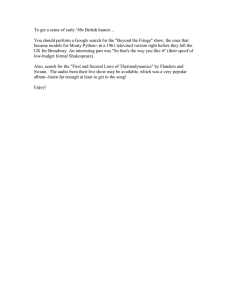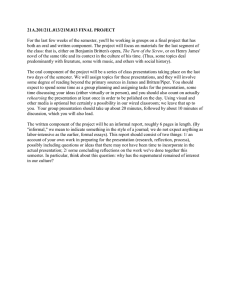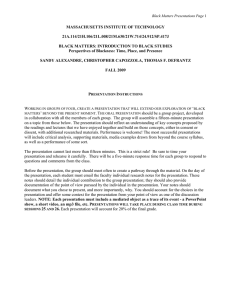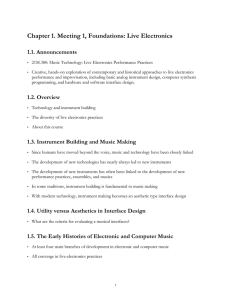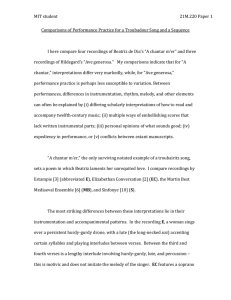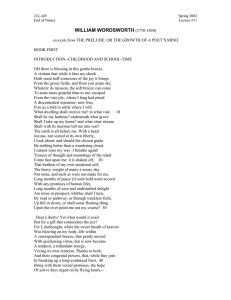21L.016 / 21M.616 Learning from the Past: Drama, Science, Performance
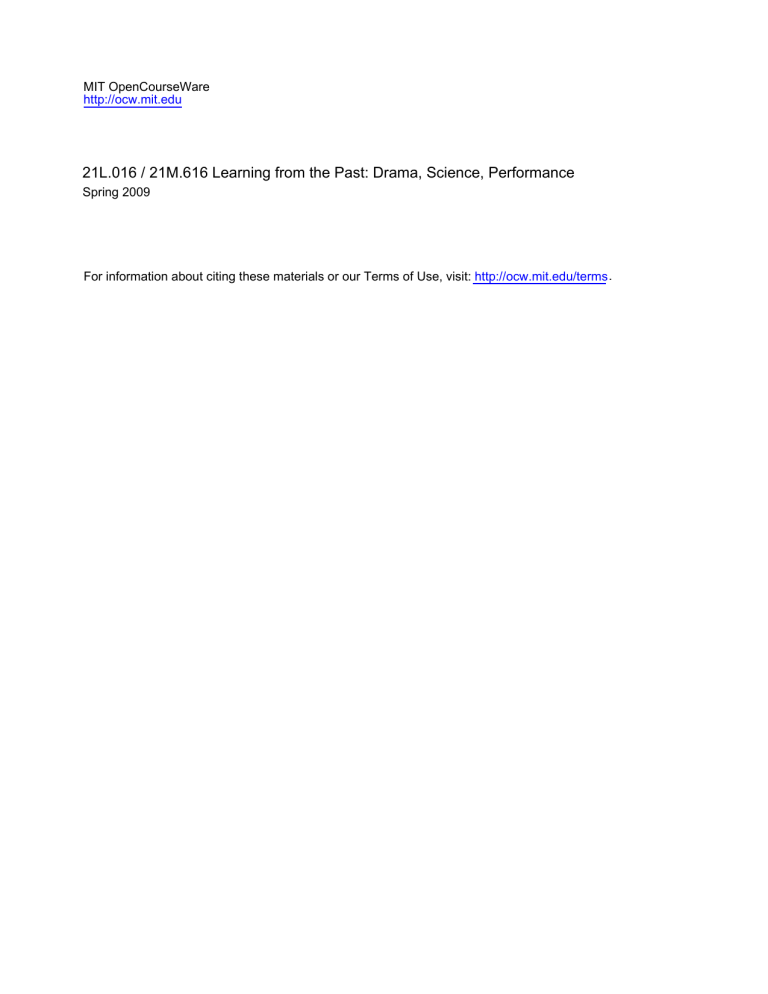
MIT OpenCourseWare http://ocw.mit.edu
21L.016 / 21M.616 Learning from the Past: Drama, Science, Performance
Spring 2009
For information about citing these materials or our Terms of Use, visit: http://ocw.mit.edu/terms .
21L.016/21M.616
Guidelines for Oral Presentation
We realize that you are at an early stage in your thinking about your upcoming analytic paper: therefore, we have designed an oral presentation assignment to help you along the path.
You may see an advantage in using this preliminary research presentation to help establish the context and content that will be the focus of your longer essay.
You may select a topic that informs your analytical essay, and without whose study you cannot proceed to your paper. For example, you might wish to write on the Dryden play Amboyna, and to present research in your oral report on trade and nationalism in the 1620’s – at the time of the massacre – or the 1670’s at the time of Dryden’s writing.
You may be interested in King Lear’s court in both the Shakespeare and Tate plays, and therefore wonder about the connection between these stage worlds and the real-world courts of James I and Charles II respectively. Further honing your topic, you might wish to focus on the role of the great nobles (such as the
Duke of Gloucester or Earl of Kent) and how their status and political importance are altered by the English civil war. In this instance, you might do an oral presentation on the economic and political changes endured by a particular aristocratic family who lived from the time of James to the time of Charles II.
Or if you enjoy thinking about the beginning of experimental science, and were interested by the observations of Robert Boyle in
The Skeptical Chemist
, you might pursue research into his debate with the philosopher Thomas Hobbes concerning proper scientific method and experimentation. In your oral presentation, you might then provide context and specific arguments (and accusations) they made concerning the pump, and offer the forms of their debate, the ways in which early scientists communicated their ideas, and the reception of the community of natural philosophers and people in power.
It is also possible that the topic that you research for your oral presentations is simply one that interests you, and that you have other plans for your paper. This is perfectly acceptable.
Please do not present your topic at such a general level that all you can share in five minutes is broad outlines of a field (such as painting, or economics, or warfare): try to move from the general to the fascinating specific instance as quickly as possible.
Practical thoughts:
The topic of the oral report must be vetted by Diana and Janet. It must involve a topic that will enlarge and enrich your classmates’ understanding of 17 th c.
England, between the Jacobean, Stuart, Protectorate and Restoration years, up to, but not including, the Glorious Revolution. You should see this oral report as a fundamental contribution to the class knowledge base; one that may help them in their own research. Need we say that Wikipedia will not be a sufficient reference?
You will present for five (5) minutes.
Prepare an outline and print enough copies of an informative accompanying handout for everyone in class (18 copies).
Please include on the handout any additional information that is useful but adjunct to your main presentation topic. On this handout, please cite all websites, essays, and books that you reference both in your presentation and in the “additional information.”
N.B. Citing textbooks from your High School A.P. World History class as your sole sources probably will not go down well with your professors. We hope you are moving well beyond the passive phase of receiving predigested history as given, and are instead moving actively and with interest into the world of scholarship!
Practice speaking aloud before you present in class. Rehearsal helps.
Where possible, supplement your presentation with visual, tactile or audio research.
